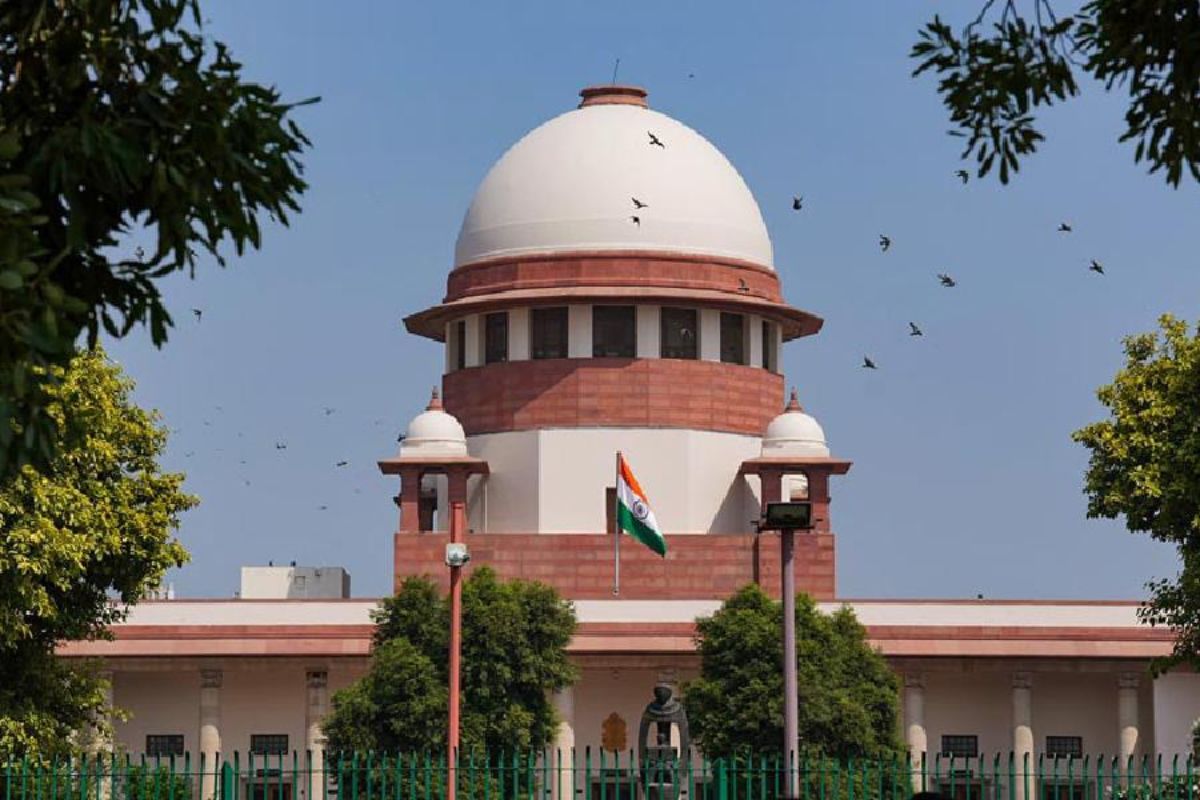PM Modi on 3-day visit to 3 states–MP, Bihar, Assam–from Sunday
According to the Prime Minister’s Office (PMO), the Prime Minister will visit Madhya Pradesh, Bihar and Assam from February 23-25.
The apex court also wanted to know about the progress in border fencing and the estimated timeline to complete it (border fencing).

SC quashes proceedings against Karnataka Dy CM Shivakumar in PMLA case
Expressing concern over illegal migration from Bangladesh, the Supreme court on Thursday directed the Central government to furnish data on the migration into Assam and other northeastern states since March 1971.
The apex court also wanted to know about the progress in border fencing and the estimated timeline to complete it (border fencing).
Advertisement
Seeking information on the number of people granted Indian citizenship under Section 6A of the Citizenship Act who presumably crossed over to India from Bangladesh between January 1, 1966 to March 25, 1971, Chief Justice D.Y. Chandrachud heading a five-judge constitution bench asked the Central government, “What is being done to tackle the problem of illegal migration.”
Advertisement
The court said notwithstanding the position it may take on the validity of Section 6A of the Citizenship Act, it is going to pursue the issue of illegal immigration seriously.
Observing that the government of India is not denying the “gravity of the issue” flagged by the lawyers appearing for the petitioners challenging Section 6A of the Citizenship Act, CJI Chandrachud told Solicitor General Tushar Mehta, “We want to know what the government of India doing about it. It is a burden on our resources. Assuming we uphold Section 6A, what are we doing about (illegal immigrants) post March 1971?”
Referring to the larger border that West Bengal shares with Bangladesh, the CJI said, “Presumably illegal migration in West Bengal will be much more significant. What is the position in West Bengal? What is the government doing … what is being done to safeguard the border, border fencing.”
The solicitor general said an updated affidavit will be filed by the Union Home secretary for which the bench gave time till Monday – December 11.
Besides Chief Justice Chandrachud, the constitution bench comprising Justice Surya Kant, Justice M.M. Sundresh, Justice J.B. Pardiwala and Justice Manoj Misra issued a slew of directions in its interim order passed soon after the bench assembled in the post lunch session.
The top court in hearing a batch of petitions challenging Section 6A of the Citizenship Act that was incorporated in 1985 by way of an amendment in pursuance to the Assam Accord that was signed between the Central government, the Assam government, the All-Assam Students Union (AASU) and All Assam Gana Sangram Parishad in New Delhi on August 15, 1985.
The Section 6A of the Citizenship Act paved the way for the grant of Indian citizenship to illegal migrants from Bangladesh who had entered India between January 1, 1966 and March 25, 1971.
Seeking information on how many illegal immigrants have been detected by the Foreigners Tribunal order 1964 in respect of those benefitted by the Section 6A of the Citizenship Act, the bench also sought the number of people who illegally entered India post March 25, 1971, the total number of Foreigners Tribunals setup by the Central government, total number of cases disposed of, total number of cases pending and the number of cases pending before the Guwahati High Court.
Defending the validity of the Section 6A, Solicitor General Tushar Mehta said that Section 6A is Assam-centric that emerged in pursuance to the Assam Accord and could not be extended to other North-Eastern States and West Bengal. He referred to provisions of the constitution that are state specific and there was no flaw if 6A was focused on Assam.
Solicitor General General Mehta said this in response to the petitioners challenging the validity of Section 6A argued why Assam alone should suffer the brunt of illegal immigrants, adversely impacting its demography, culture, language and its resources.
He said he was not trivialising the grievance of the petitioners challenging Section 6A, but only defending the validity of provision under challenge.
Noting that a piquant situation would be created if Section 6A is struck down, Chief Justice Chandrachud said that Bangladesh will not take them back. You will have a situation where foreign tribunal will declare them foreigners, they will not be Indian citizens, and cannot be sent back.
Senior advocate Kapil Sibal appearing for one of the respondents told the bench that petitioners challenging validity of Section 6A cannot invoke Article 29 as presence of migrants in Assam was not impacting them culturally, their language including script.
Taking the court through illegal immigration happening the world over, in particular in Germany and Mexico, Sibal said that these issues cannot be determined judicially.
As the hearing remained inconclusive, it will be continued on Tuesday – December 12.
Advertisement